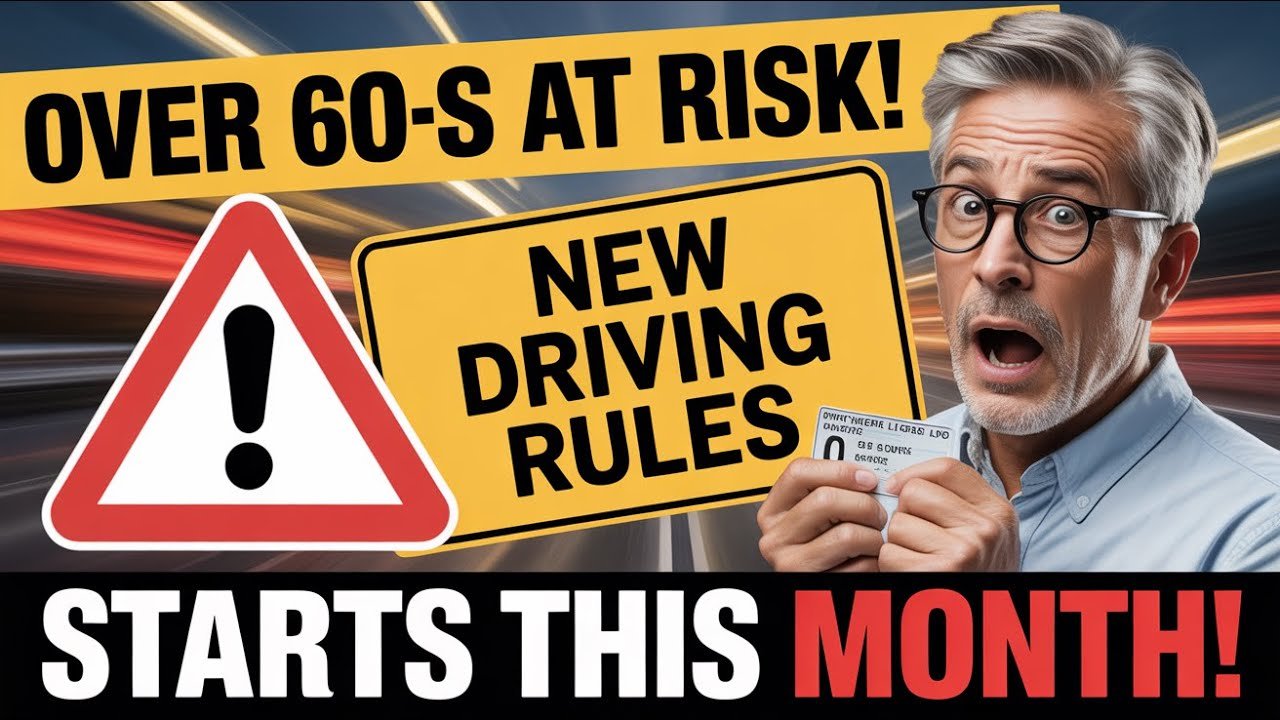Starting October 2025, Australia is rolling out new driving laws that will directly impact retirees aged 60 and older. These changes aim to keep roads safer while ensuring senior drivers remain confident behind the wheel. If you’re a retiree or have a loved one in this age group, here’s everything you need to know about the updated rules, medical tests, and what they mean for you.
Why Are These Driving Laws Changing?
As Australians live longer and stay active behind the wheel, road safety for older drivers has become a priority. Age-related factors like slower reflexes, vision changes, or medical conditions can increase crash risks. The new laws are designed to balance safety with independence, ensuring seniors can drive confidently while protecting everyone on the road.
These updates reflect a thoughtful approach to keeping Australia’s roads safe without unfairly restricting retirees.
What’s New for Drivers Over 60?
The 2025 driving laws introduce stricter requirements for seniors, focusing on more frequent license renewals and mandatory health checks. Here’s a quick breakdown:
Shorter License Renewal Periods
For drivers aged 60 and above, license renewals will happen more often. Instead of the standard five- to ten-year renewal cycle, some states may require renewals every one to three years. This ensures seniors are regularly assessed for safe driving ability.
Mandatory Medical Assessments
Health checks are a cornerstone of the new laws. Starting at age 60, drivers may need to undergo medical exams every one to two years, depending on their state’s rules. These assessments evaluate:
- Vision
- Reflexes
- Overall physical health
A doctor’s certification will confirm whether a senior is fit to drive safely.
On-Road and Knowledge Tests
For drivers aged 70 and older, some states may require additional on-road driving tests to assess real-world skills. Knowledge tests could also be mandatory to ensure seniors are up-to-date on current road rules, such as speed limits and traffic regulations. These tests aim to keep older drivers sharp and safe.
Testing Requirements by Age
| Age Group | Renewal Frequency | Medical Assessment | On-Road/Knowledge Test |
|---|---|---|---|
| 60–69 | Every 1–3 years | Biannual or annual | Rare, state-dependent |
| 70+ | Every 1–2 years | Annual | Possible in some states |
How Will These Changes Affect Retirees?
The new rules mean seniors will need to engage more frequently with licensing authorities and healthcare providers. For some, this might feel like an extra hassle. However, these measures are designed to support independence by confirming that retirees can drive safely.
Families play a key role, too. Helping a loved one navigate renewals or medical checks can make the process smoother and less stressful. It’s all about ensuring seniors feel empowered, not restricted.
The Bigger Picture: Safety and Independence
These changes aren’t about taking away driving privileges—they’re about keeping roads safe for everyone. By focusing on health and capability, the laws help seniors maintain their freedom while reducing risks. For retirees, it’s a chance to stay active and independent with confidence.
The updates also remind us that safe driving isn’t just about experience—it’s about staying physically and mentally prepared for the road.
What Should Seniors Do Now?
If you’re over 60 or approaching that age, here’s how to prepare:
- Check with Your State’s Licensing Authority: Renewal and testing rules vary by state. Visit your local transport authority’s website for details.
- Schedule a Medical Check-Up: Stay ahead by booking a health assessment with your doctor.
- Brush Up on Road Rules: Review current traffic laws to ace any knowledge tests.
By staying proactive, seniors can navigate these changes with ease and keep driving safely.
FAQs About the 2025 Driving Law Changes for Seniors
Who do the new driving laws apply to?
The laws apply to Australian drivers aged 60 and older, with stricter rules for those over 70.
How often will seniors need to renew their licenses?
Depending on the state, renewals may be required every one to three years for drivers over 60.
Are medical assessments mandatory?
Yes, drivers aged 60 and above may need biannual or annual medical checks to confirm they’re fit to drive.
Will seniors need to take driving tests?
In some states, drivers aged 70+ may face on-road or knowledge tests to ensure they meet safety standards.
How can retirees prepare for these changes?
Check state-specific rules, schedule medical exams, and review road regulations to stay compliant.




